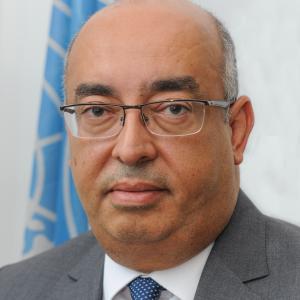Statement on the International Day of Education 2025 UNESCO Regional Office for the Gulf States and Yemen
24 January 2025
In 2018, the United Nations General Assembly adopted a resolution proclaiming January 24 as the International Day of Education, in celebration of the key role that quality and equitable education plays in advancing global peace and sustainable development.
This year not only do we celebrate the transformative power of education towards sustainable development, but we also reflect on the challenges and opportunities that shape our world. As we focus on the intersection of artificial intelligence (AI) in education and human agency, we are reminded of the profound impact technology has on our lives and the need for thoughtful and responsible engagement with these advancements, safeguarding human rights and preserving linguistic and cultural diversity.
AI holds immense potential to revolutionize industries, enhance our daily lives, and tackle complex global challenges. However, as we integrate AI more deeply into society and education, it is crucial to remember the irreplaceable value of prominently human skills and competencies, such as critical thinking, empathy, and creativity. It is, therefore, important to build critical AI literacies, by equipping educators and learners with the competencies needed to understand, use and shape AI technologies. UNESCO has developed AI competency frameworks for teachers and learners, the first ever such frameworks, that outline core competencies for teachers to understand the technical, ethical and pedagogical dimension of AI and for learners to become responsible and creative citizens, co-creators of AI and future leaders who will shape novel iterations of the technology and define its relationship with society.
In the Gulf States, a pioneer region in this field, the UNESCO Regional Office, with key strategic partners, is mapping the extent to which AI is integrated in the education systems, how it is being implemented, and what impact this is having on the classroom, teachers and learners. The Regional Office in Doha is also developing a guidance for school leaders on critical AI literacies, mindful of the opportunities and challenges that technology presents. UNESCO is also supporting its Member States on integrating the Ethics of AI in their regulatory frameworks, including in the education systems and across sectors.
In concluding, on this day, let us reflect on how AI complements, rather than replaces, the essential human elements of learning and creativity, including the cultivation of in-person relationships and emotional intelligence.


